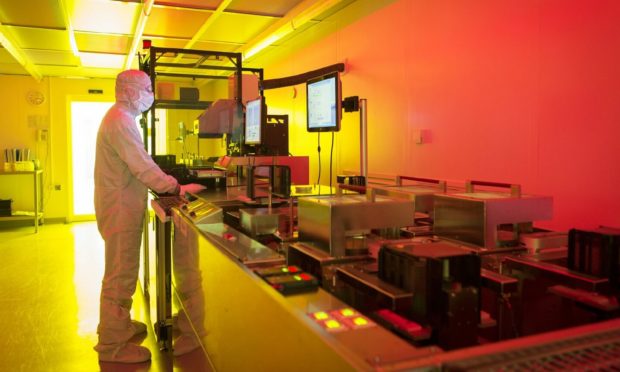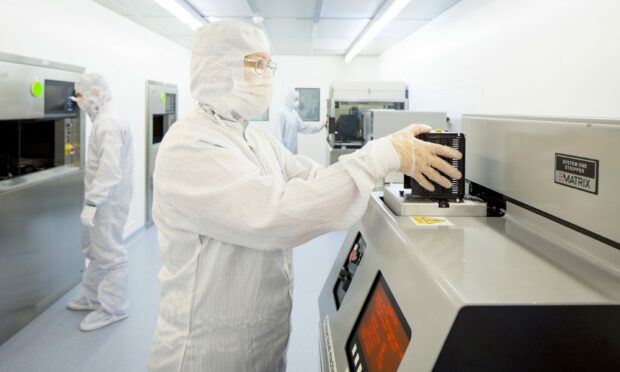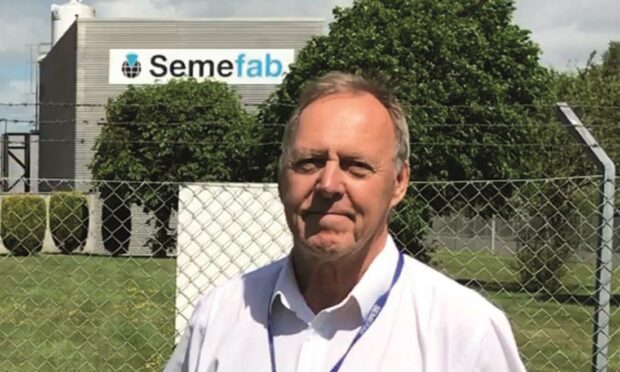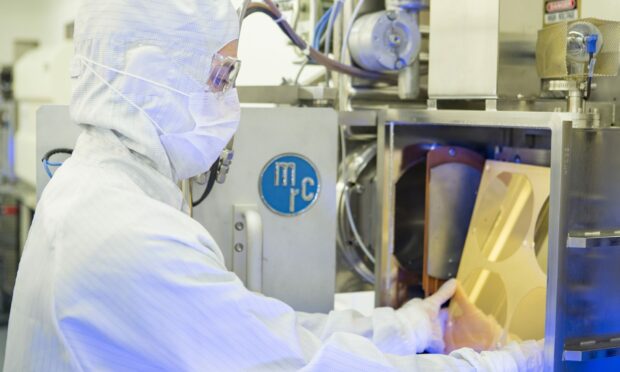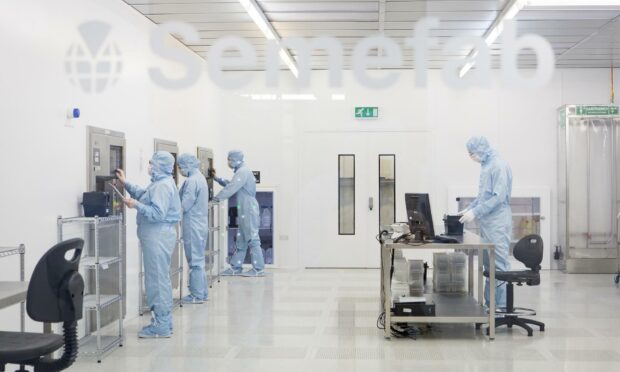Glenrothes semiconductor manufacturer Semefab will close one of its Fife facilities next year.
Semefab, which produces sensors for the security, automotive, medical and industrial sectors, was set up in 1986 by Allan James.
It currently operates three semiconductor processing facilities, also known as a wafer fab), from its base at Eastfield Industrial Estate in Glenrothes
Mr James, the firm’s managing director, said the original facility, fab one, will close in the second half of next year.
No jobs are at risk, and the firm is looking at adding to its 125-strong workforce.
While that will lead to a downturn in sales, Mr James believes it will stand the business in good stead for the long term.
He said: “We’re closing fab 1 because it’s the original wafer fab and it’s four-inch diameter silicon.
“It’s not as cost-effective as six-inch diameter. It is just common sense to move to six inch wherever possible.”
The original wafer fab, made from used equipment when Mr James started the business more than 30 years ago, is getting difficult to maintain.
“It has run its course and we’re going to close it and remediate the building.
“We plan to build an eight-inch facility by 2025.”
Turnover rises to more than £11m
Mr James said previously he wants the business to grow to £25m turnover in the next five years.
He acknowledges the plan to close the original wafer fab will stunt that progression, but he still plans to hit that target.
“We’re enacting a strategy of developing our circuit business and our semiconductor business strongly now so we can take part in that additional growth to 2025,” he said.
Newly published accounts at Companies House show the firm saw turnover rise from £10 million to £11.6m in the year to October 31, 2020.
The majority of the company’s sales were to the USA (£3.3m) while its UK sales were just over £2.2m.
Pre-tax profits for the firm also climbed to more than £1m – up from £113,000 in 2019.
When Covid-19 pandemic restrictions were introduced, the company was designated as an essential services provider due its thermopile capability for non-contact people temperature measurement.
Thermopile chips are rated as one of the best instruments to take an accurate measurement of human body temperature, absorbing infrared radiation to help record a reading.
Mr James said: “We were running right the way through the first wave of the pandemic manufacturing flat-out.
“We were making 12 million thermopile devices for the Chinese and North American markets, for temperature guns.
“We also had low pressure sensors going to ventilators and respirators.
“All of that meant we had an uninterrupted year so we turned in a good result.”
He said the firm was seeing a further “significant increase” in growth, and forecasts Semefab’s turnover to be around £14m by next year.
“That is on the back of significant increases in our integrated circuit business and our sensor activity.”
Increasing capacity and future plans
Mr James also wants to increase capacity on-site. It currently runs 101.5 hours per week, but he believes it should be operational round the clock.
The firm has also taken on 10 new staff in the past 18 months.
Of the current operation, he said: “We are running four-and-a-half days a week, which is great for work-life balance.
“It’s not the most efficient way to run a facility like Semefab. Really we should be running 24/7.
“That is 168 hours so you can see it would be a significant output by running round the clock. That is what we’d intend to do to get to the £25m level.
“It is dependent on being successful in the right business opportunities.”
“There’s going to be a dip in turnover in 2022 so we’ve got to guard against that, but we’ll need to keep growing if we are to operate 168 hours.”
